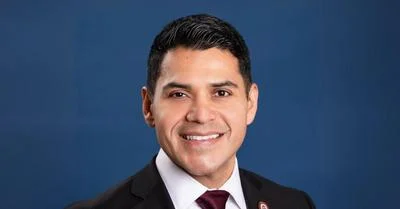Dr. Brian Lee | Scottsdale Sinus and Allergy Center
Dr. Brian Lee | Scottsdale Sinus and Allergy Center
- Nasal inflammation, also referred to as sinusitis, involves inflammation or swelling of the sinus lining.
- When the sinuses become inflamed, the build-up of pressure in your sinuses causes pain that feels like a headache.
- Sinus inflammation affects 16% of women and 10% of men each year.
“Facial pain is very common in chronic sinusitis,” Dr. Lee told the Grand Canyon Times. “That essentially stems from the fact that the sinuses aren't draining or ventilating properly. When the sinuses get inflamed, they swell shut, and they trap air and mucus. As that sits and festers is where some of that pressure starts to build up and the sinus headaches are what you feel.”
According to Pulchra, Sinuses refer to the hollow spaces found between the eyes, behind the cheekbones, and the forehead. They are responsible for making mucus that keeps the insides of the nose moist protecting you from pollutants, dust, and allergens. When filled with fluid and blocked, an infection caused by germs occurs. If you have an inflamed sinus, it’s sinusitis. It includes symptoms like pain, tenderness, or swelling around the sinuses.
Nasal inflammation can obstruct air passages, leading to increased mucus production and the potential for infection, according to the American Sinus Institute. The issue is relatively common and is often triggered by something as common as the common cold. Additionally, allergic rhinitis, which involves swelling of the nasal lining, can contribute to nasal inflammation. The Institute mentions that another possible cause is a deviated septum or a structural shift within the nasal cavity, which can also initiate this condition.
Nearly 37 million Americans suffer from at least one episode of acute nasal inflammation each year, according to the Institute. For those who suffer from conditions like the blockage of drainage ducts, nasal polyps, narrow drainage ducts, nasal mucous membrane swelling or those whose medications compromise the immune system could be at greater risk for this condition. Children who are exposed to second-hand smoke may also be more likely to have an attack.
For patients suffering from nasal inflammation, the goal is usually to relieve symptoms and treat any infections, according to WebMD. Patients might take antibiotics, as well as antihistamines or decongestants for a short time. Pain relievers may also be taken, but if they’re ineffective, a doctor may prescribe corticosteroids to ease sinus inflammation. If an allergic reaction causes sinus flare-ups, preventive allergy treatment may be needed.
According to Scottsdale Sinus and Allergy's website, Dr. Brian Lee graduated from Loma Linda University School of Medicine and was a member of the Alpha Omega Alpha Honor Society. He completed his internship and residency in otolaryngology (head and neck surgery) at the University of Southern California. Dr. Lee was named one of the Valley's "Top Doctors" by Phoenix Magazine in 2015 and 2016.






 Alerts Sign-up
Alerts Sign-up